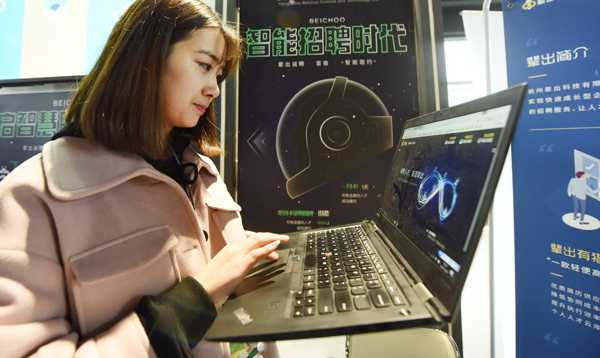Information spending tilts to services
By Ma Si | China Daily | Updated: 2018-01-13 09:45

Chinese consumers and government entities will spend more money on information services than products for the first time in 2018, according to the report released on Friday by the China Academy of Information and Communications Technology.
"Information consumption is expected to hit 2.6 trillion yuan ($402 billion) in 2018, and the figure for product consumption will be 2.4 trillion yuan," said Lu Chuncong, director of the Policy and Economic Research Institute at CAICT, a think tank affiliated with the Ministry of Industry and Information Technology.
Hitting 5 trillion yuan in 2018, China's spending on information consumption is expected to grow 11 percent year-on-year, as government institutes and consumers buy more technology-enabled products and services, the report said.
The report came as China is already one of the world's largest spenders on information-related products and services, such as e-commerce, intelligent electronics, online education, medical treatment and telecom services.
According to Lu, the majority of Chinese netizens are those born from the 1980s onward, who are more comfortable buying information-related products and services than their Western counterparts.
"Senior citizens in China are also very responsive to new things, which will further drive up information consumption," Lu added.
In August, the State Council, China's Cabinet, unveiled a guideline to bolster information consumption in the next few years, as part of the country's broad push to stimulate domestic demand and shore up economic expansion.
It promised favorable policies, such as deepening efforts to set up a pilot city to boost the development of smart home appliances, wearable devices, blockchain technology and other popular products and services.
"Information consumption has become one of the most innovative, rapidly growing and widely adopted economic spheres, and is significant to driving domestic demand, creating jobs and pushing forward industrial upgrades," said Li Ying, an official at the Ministry of Industry and Information Technology.
























